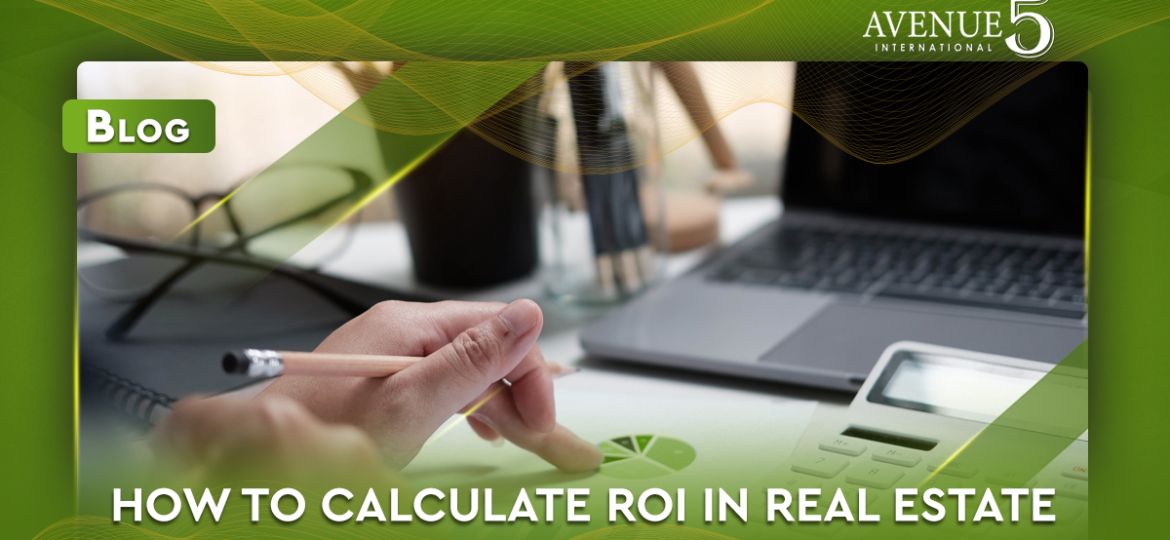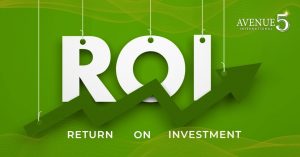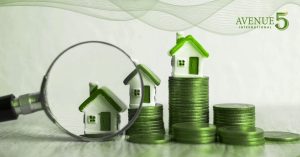
The majority of real estate investors have no idea how to calculate ROI, and as a result, they are unable to properly appraise the value of their property.
One of the most lucrative sectors is real estate. It provides a variety of investment opportunities, including residential and commercial projects, retail offices, real estate investment trusts (REITs), and property holdings.
Investors benefit from consistent cash flows, long-term financial security, investment diversification, tax advantages, and, in most situations, a higher return on investment (ROI).
The majority of investors favour rental properties because they provide a consistent cash flow that can be used to invest in a variety of different areas. Some speculators purchase homes with the intention of quickly selling them and profiting more. Investors’ objectives may varied, although a high return on investment is usually the primary goal.
Avenue5international, Pakistan’s most intelligent real estate platform, has put up a comprehensive explanation on how to calculate real estate ROI.
- What is ROI?
- Requirements to Calculate ROI
- How to Calculate ROI?
- What is Good or Bad ROI?
- Factors Affecting Property’s ROI Value
- Ways to Increase ROI in Real Estate
What is ROI?
ROI is a mathematical formula that allows investors to compare the performance of one asset to that of others over time. To summarise, it is the profit earned by an investor on his or her investment.
The profit made by a property in the form of rent or property value appreciation is referred to as ROI in real estate.
Requirement to Calculate ROI?

There are a few basic needs to determine the prospective ROI after you’ve found a property to invest in. These elements will influence how a property investment performs in the near future.
- Property Details: The location, the cost of repairs, the price per square foot, and the number of bedrooms are all important factors to consider.
- Mortgage Details: Closing expenses, down payment, and loan terms
- Rental Income Details: Tenancy ratio, expected rental value
The cost of property upkeep
How to Calculate ROI?
The following formula is used to calculate ROI in real estate:
(ROI = Gain in investment – Initial cost of investment/Total Cost)
- To calculate ROI, you need to calculate the final value of your property including investment gains.
- Subtract it from the initial value of the investment without closing costs.
- Divide the resulting value by the total investment cost, which includes closing costs as well.
This formula is basic and easy to work with. However, investors might get confused as they have to keep track of all factors that can affect it.
For instance, the closing cost can be unpredictable and can affect the ROI negatively.
What is Good or Bad ROI?
A property is deemed to have a good ROI if it generates enough profit after paying off all of the closing costs. A good return on investment, according to major real estate corporations, is between 8 and 10%.
A property with a poor ROI, on the other hand, is one that does not create profits. Investors are less interested in properties with returns of 2–5%.
Factors Affecting a Property’s ROI Value:

The following are some of the factors that can affect the value of your property’s ROI:
- Location
- Property type
- Property’s condition
Location:
The location of a property plays an important role in determining its value and potential return on investment. If a home is close to significant amenities like schools, hospitals, and highways, it has a good possibility of generating a high return on investment. However, expecting a significant return on investment from a property located in a remote place is unreasonable.
Furthermore, demographics, such as age and socioeconomic characteristics specific to that location, are important. Residents in a certain location will make more investments if they earn well and have a good standard of living.
Property Type:
There are six different property types based on their usage:
- Residential
- Commercial
- Mixed-Use
- Industrial
- Agriculture
- Special Purposes (Offices, Research)
The return on investment for each of these types of assets varies. Commercial units, for example, create greater money in a shorter period of time than residential units, which expand slowly and yield minimal rental income.
Agricultural land, too, can bring in money through crop production. As a result, before making an investment, you should carefully consider the many types of properties available and the potential income they might provide.
Condition of the Property:

Purchasing a property in poor condition is a waste of money. It will be quite expensive in terms of maintenance and repair costs. Furthermore, such properties have a lower possibility of being rented.
Well-kept properties with a variety of amenities and services, on the other hand, will attract a large number of tenants and buyers.
Ways to Increase ROI in Real Estate
The following are some important strategies that can be used to increase ROI in real estate:
- Invest in the right property type
- Purchase cheap properties
- Improve your property’s condition
- Reduce annual costs on property maintenance
- Create a marketing strategy for your property’s advertisement
Keeping all of the above factors in mind, investors can make a hefty profit on their property investments.
Visit Avenue5 International if you want to know more about us, and Times Square & The Dunes Mall for our projects information.

